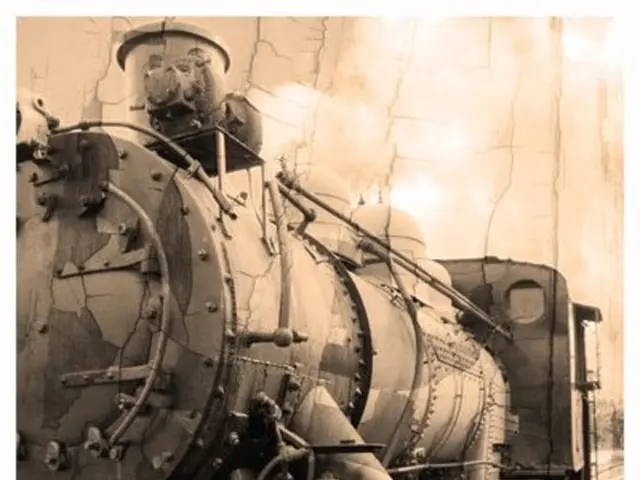Caste information to be collected in India's upcoming census after a gap of multiple decades.
Breaking News: India Takes a Major Leap, Announces First Caste Census Since Independence
Brace yourselves, India is venturing into uncharted territories as the government has announced it will conduct a caste census, a bold step that's been long overdue since India gained independence.
Caste, a divisive and deeply entrenched aspect of India's socio-political landscape, continues to significantly impact a citizen's life prospects, with the higher castes enjoying historical cultural privileges and the lower castes suffering from perpetual discriminations.
The majority of India's staggering 1.4 billion population is believed to fall on the lower rungs of a centuries-old social hierarchy, as they've been categorized based on their function and social standing.
A cabinet meeting, headed by Prime Minister Narendra Modi, has given the green light to include comprehensive caste data in the upcoming census, originally scheduled for 2021 but yet to occur.
With the decision to compile detailed caste data, India is set to experience profound political and societal transformations.
The North-South Divide over Modi's Plan for Constituency Redrawing
"Today, the Cabinet Committee of Political Affairs has agreed that caste enumeration should be integrated into the upcoming census," shared government spokesman Ashwini Vaishnav with the press.
"Such a commitment demonstrates a Government's unwavering allegiance to a nation's social and cultural values," he added.
A tentative date for the census hasn't been revealed yet.
Interestingly, the last caste-based census was conducted in 1931, during British colonial rule. Since then, successive governments have been reluctant to update the sensitive demographic data, citing complex administrative reasons and potential social unrest as the main reasons for their hesitation.
In 2011, a survey was carried out but its results were never disclosed since they were believed to be inaccurate. That survey was distinct from the general census conducted that year.
Modi's Hindu nationalist Bharatiya Janata Party (BJP), in the past, has been a vocal opponent of the idea of enumerating people by caste. They maintain that it would exacerbate social divisions. Conversely, proponents argue that having thorough demographic information is crucial for the effective implementation of India's social justice programs, including extending university seats and government jobs to socially marginalized groups.
Modi himself comes from a low caste and has expressed a desire to improve the living conditions of all, regardless of birth status. He once said that the four biggest "castes" for him were the poor, youth, women, and farmers.
Enrichment Insights:
Background and Decision:
India's decision to conduct a caste census is an unprecedented move, with the last comprehensive caste-based census being performed in 1931. The recent decision was made by the Cabinet Committee on Political Affairs, whose objective is to empower both society and the economy.
Reasons for the Decision:
1. Political Strategy: The decision comes before the Bihar Assembly elections, potentially intending to counter political criticism or win support.
2. Demand for Data: There has been a long-standing demand for caste-based data to better understand the socio-economic status of various communities. This information can help in crafting more focused affirmative action policies and resource allocation.
3. State-Level Surveys: Some states, like Bihar, have already conducted caste surveys, which could have influenced the central government's decision to consider a national-level survey for consistency and reliability.
Potential Implications:
Politics:*
Affirmative Action Policies:*
Social Implications:*
- The government's commitment to earmarking caste data in the upcoming census demonstrates a determinant shift in policy-and-legislation, aiming to address the deeply entrenched caste system that continues to impact the interests of Indian citizens.
- As Prime Minister Modi's plan for constituency redrawing incites a North-South divide, the decision to conduct a caste census suggests that value is being placed on thorough demographic information, critical for effective implementation of social justice programs and resource allocation.
- The believed exacerbation of social divisions due to caste enumeration, as argued by Modi's BJP, may be countered by proponents who assert that comprehensive caste data is essential for accurately assessing the ongoing impact of the caste system on India's socio-economic landscape and general-news headlines.
- The estimated political gains for the BJP in countering opposition strategies and addressing long-standing demands for caste data through the announced caste census may prove to be a significant determinant in the upcoming Bihar Assembly elections.
- Should the caste census lead to a robust data-driven approach in governance, it could determine tangible transformations in India's political and societal landscape, offering new insights into caste dynamics and enabling more focused affirmative action policies, resource allocation, and social interventions.






